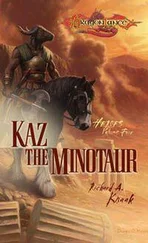No one had mentioned the maze. Perhaps if you had one in your grounds and had always had it, had been born to it, so to speak, and grown up with it, you had lost interest and forgotten it was there. Or was it not there? I could have asked. If I didn't it was because I felt that the Cosways' silence on the subject of something so interesting indicated it was banned as a topic of conversation. Or that, if they wanted me to know about it, they would have mentioned it by now.
This didn't stop me looking for it. I kept my eyes open while on those dreary walks with John and whenever I went out into the grounds alone I looked, not only for a maze but for the traces of where a maze might once have been, the cut-off trunks of bushes showing through the grass, a copse of trees all of the same kind and closely planted, even a barren square of turf with no apparent purpose or use. There was nothing.
Later that week I came back from one of these explorations to find Mrs Cosway and Zorah in the drawing room in the throes of an argument I knew instinctively that Zorah would win. She was dressed in a white suit and had pushed her sunglasses up into her black hair so that she looked like a taller version of Jacqueline Kennedy. Mrs Cosway was holding the amethyst geode, needing both hands to do this because it was too heavy for one. Neither Ida nor Winifred was anywhere to be seen.
‘Haven't you taken enough upstairs to those rooms of yours?’ Mrs Cosway was saying. ‘Oh, no. Now you want this. You could go and buy all these things. You could afford it. It seems to me you can afford anything.’
‘Just as well for you, Mother,’ said Zorah. ‘A fine mess you'd all be in if I couldn't.’ She turned when she heard the door. ‘Hallo, Kerstin.’
I said hallo to her and, apologizing for coming in on what seemed to be a private matter, said I would go.
‘No, you don't,’ Mrs Cosway astonished me by saying. ‘Now you're here you can arbitrate.’ This brought one of her small Gioconda smiles to Zorah's face. ‘Tell me your opinion. My daughter has already removed all the prettiest ornaments from this room and not only this room. Now she wants the geode. Why? She won't say.’
‘Yes, I will. I rather like it.’
This I thought the response of a tyrant, worthy of a dictator who can command anything or negate anything.
‘What do you think, Kerstin?’
I was astonished to be asked. My opinion was certainly never again sought on any subject. ‘I don't know, Mrs Cosway,’ I said. ‘It's not my business.’
Zorah raised her wonderfully shaped black eyebrows. ‘Any judge might say that, Kerstin. Nothing that goes on in a court would be his business if he hadn't been appointed to make a decision.’
‘He only recommends,’ I said. ‘He has a jury.’
That made Zorah laugh and as her mother allowed a small smile to widen her mouth a centimetre, she reached for the geode and quickly took it out of her hands. This action produced a scream of rage as Mrs Cosway lunged at her daughter, ineffectually grabbing at the geode. It fell to the ground with a heavy thump and rolled across the floor. I heard a sound from John. He was on his feet, his hands up to his ears, his eyes bulging.
‘No, no, no, no,’ he whimpered. ‘No, no…’
‘See what you've done to your brother!’ Mrs Cosway, though crawling across the carpet, was once more frustrated by an agile Zorah grabbing the geode and holding it up high like a child with a stolen ball. ‘Look what a state you've got him in. You're a disgrace, you ought to be ashamed.’
Zorah was smiling no longer. ‘Be careful what you say, Mother. You know what I mean.’
That was more than I did. John had crawled into a far corner of the room, where he sat with his forefingers pushed into his ears, his head bent. Horrified as much at Mrs Cosway's careless anger and Zorah's indifference, I watched him curl himself up on the carpet in the foetal position.
‘Can I do anything?’ I said, and then, ‘There must be something we can do.’
‘Just leave him.’ Mrs Cosway sounded more impatient than I had ever heard her. ‘Leave him alone. Ignore him. He'll get up and come back eventually.’
Zorah gave me an amused look. She walked over to John and said, ‘Never mind, old chap. You soldier on.’
John stayed in his corner for about half an hour but just as I was beginning to think this was more than I could bear, this grown man curled up on the floor, his mother reading the newspaper as if this was normal behaviour, he got up and shambled back to his armchair.
Next morning Zorah invited me up to her rooms.
6
I had decided to go to London that evening instead of waiting till the Saturday. Although I had settled into helping Ida in the mornings, this after breaking my firm resolve to do no housework, walking with John in the afternoon and attending the ritual of his bedtime, I had nothing to do after that except eat and watch television with the family. I was in the dining room phoning the station for train times, when Zorah walked in.
‘How are you going to get there?’
‘I thought I'd go to Marks Tey because it's nearest. I'll walk. It's only a mile.’
‘A very long mile! I'll drive you if you like.’
I accepted as I had a bag to carry which was light enough but would become very heavy by the time Marks Tey station was reached. As I was giving Zorah the time of my train, Ida came in with a tablecloth and the knives and forks for lunch. She had been shopping in the village.
‘Mr Dunhill is moving in on Monday,’ she said with the pride of someone imparting a thrilling and long-awaited news item. ‘Mrs Waltham told me in the post office.’
In that light and slightly mocking tone I was beginning to associate with her, Zorah said, ‘And who may Mr Dunhill be?’
‘The artist who's moving into The Studio.’
‘I've never heard of him. Should I have?’
‘I don't know, Zorah. I don't even know what sort of an artist he is. No one seems to know.’
‘Would you like me to find out?’
‘Could you?’ Ida spoke with the kind of admiring wistfulness I could already tell Zorah liked when it was directed at her. It implied that she was clever and that she knew the right people, a puller of strings, in the know, a spy in the corridors of power. ‘Could you really?’
‘I expect so,’ said Zorah carelessly. ‘Leave it to me.’ While Ida laid the table, she turned to me. ‘Shall I show you where I live when I'm here?’
We went upstairs. I already knew where her room must be, along the passage past Mrs Cosway's and Ella's where I had never had reason to venture. I followed her, waiting to see another shabby chamber stacked with treasures stolen from her mother. It was not like that. She opened the door and stood back with the sort of pride I would never have expected from someone with her combination of sophistication and coolness.
‘There,’ she said, and I heard the little girl she had once been in her voice, the spoilt child (as I thought then) which the youngest, the afterthought, often is.
Big structural changes had been made. This had probably been two rooms which she must have had combined, for there were windows at each end of it, and an arch dividing living room from bedroom. The walls were panelled and painted in ivory and pale blue in the eighteenth-century manner and a fine cornice of swatches of ribbons and flowers separated them from the ceiling. The carpet was ivory, a vulnerable carpet which looked untrodden, and on it stood pieces of French furniture in blue and Chinese yellow as well as several deep armchairs and two sofas. I wondered if the spinet and the harp also came from downstairs rooms and, come to that, the landscapes in their slender gilt frames.
Читать дальше












